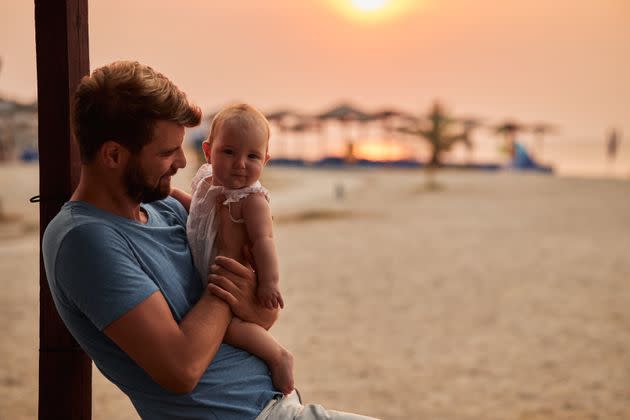5 Crucial Signs Your Baby Has Heatstroke

Now that we finally have some warmer days ahead of us, it’s an ideal time to get babies out of the house, down to the park or beach to make the most of the sunshine and get some crucial outdoor play in.
However, with these warmer days come things like heatstroke, which can sneak up without warning and the symptoms of it aren’t always clear, especially in young babies that can’t quite convey what’s happening to their bodies.
Thankfully, with the right preparation, heatstroke is avoidable.
The signs that your baby has heatstroke
According to Childrenshealth: “Heatstroke in a baby is rare but very dangerous. Allowing a baby or child to stay outside too long in hot weather, ride in a hot car or sit in a parked car – which should never occur – can cause his or her body temperature to rise quickly.”
The signs to look out for in babies are:
Restlessness
Rapid breathing
Lethargy
Irritability
Vomiting
If you notice some of these symptoms, The Red Cross recommends giving them plenty of fluids to drink and advised that parents follow these steps:
Babies under 6 months old might want to feed more often - whether that’s breast or bottle. They don’t need to be offered water
If you are breastfeeding it’s even more important to keep well hydrated yourself.
For babies who are formula fed, make sure to mix the milk according to the manufacturer’s instructions. Importantly, it doesn’t need to have more water added
Babies who are over 6 months old or who are weaning can be given small volumes of additional water (boiled and cooled), but this shouldn’t replace any normal milk feeds given
How to avoid heatstroke in babies
The NHS recommends that children under the age of six months are kept out of direct sunlight as their skin hasn’t developed enough melanin, which is the pigment that gives skin, hair and eyes their colour, and provides some protection from the sun.
Additionally, babies older than six months still should be protected from the sun, especially between the hours of 11am and 3pm, when the sun is at its strongest.
The NHS also recommends that factor 30 or above sunscreen is applied to babies and that before bed on a hot day, babies have a cool bath.
Additonally, ensure that your baby is hydrated and not dressed in too many layers when they go to bed.

